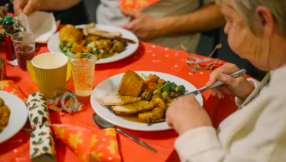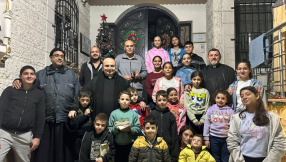No More Talks on Korean Hostages - Taliban Spokesman
An Afghan team that was supposed to have held more talks with the Taliban on Saturday could not reach the group because of security concerns in Ghazni province, provincial sources said.
The team hoped to persuade the insurgents to free without condition the Christian volunteers they kidnapped from a bus 10 days ago in Ghazni, south of Kabul.
A deputy interior minister on Saturday told Reuters that force might be used if talks fail.
Qari Mohammad Yousuf, a Taliban spokesman, warned on Sunday against use of force and pressed for the freedom of the rebel prisoners as the main condition for the release of the Koreans.
"There is no need for further talks. We have given the government a list of Taliban prisoners who should be released and that is our main demand," he told Reuters by telephone from an undisclosed location.
"The government needs to deliberate on it and if it wants to use force, then it will jeopardise the lives of the hostages and the Taliban will resist till the last gasp of their breath," he added, but did not issue any new deadline.
The kidnappers killed the leader of the group on Wednesday, but several Taliban deadlines have passed without the rebels carrying out their threat to kill the rest of the hostages.
HOSTAGES SICK
Eighteen of the remaining hostages are female and are being held in small groups at different locations. Yousuf said some of the hostages were sick.
Ghazni's governor, Mirajuddin Pathan, said medicines the Korean government had wanted to send for them could not be delivered because the Afghan team could not establish contact with the Taliban.
Pathan said the government did not want to use force to rescue the hostages.
"We have no plan of attack. We are trying to send the delegation for more talks," he told Reuters.
In addition to Afghan forces, foreign troops are also stationed in Ghazni.
"I really wish that the negotiations will go well and that she would hurry and return to our family. There is nothing else," said Yoo Jung-hee, a sister of one of the female hostages, at Saemmul Church near Seoul which sent the Koreans to Afghanistan.
"I know that the government is trying hard but I just miss my sister," she said. "Of course I miss her. I just want to see her. That is all, I just want to see her face."
A South Korean special envoy held talks with President Hamid Karzai on Sunday and spoke about the efforts to try to speed up the hostages' release, Afghan officials said, but refused to elaborate further.
After coming under harsh criticism for freeing five Taliban prisoners in exchange for the release of an Italian hostage in March, Karzai ruled out any deal with the Taliban.
The president and his ministers have remained tightlipped over the crisis.
The Taliban are still holding one German and four of his Afghan colleagues who were abducted from a neighbouring province a day before the Koreans. Another German seized alongside them was later found dead with gunshot wounds.
The abduction of the Koreans is the largest kidnapping of foreigners by the Taliban since US-led and Afghan forces overthrew the movement's radical Islamic government in 2001.
It comes amid an increase of violence in the past 18 months, the bloodiest period since Taliban's removal.













